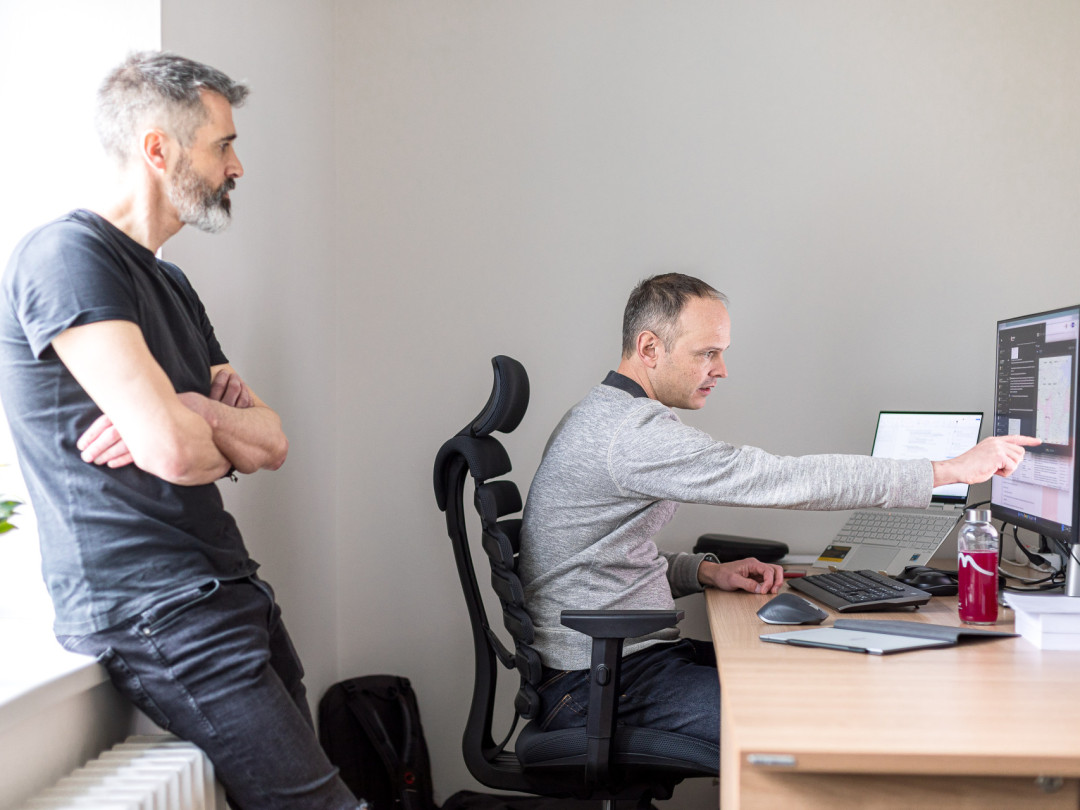What’s the most challenging problem you’ve tackled at Navmatix, and how did you approach solving it?
I don’t think there was one single most challenging problem; rather, I regularly switch between multiple projects and programming languages, so the biggest challenge is quickly adapting to different technologies, codebases, and project requirements. To manage this effectively, I regularly update notes for each project and structure my workflows so I can flexibly respond to changing priorities without losing track.
How do you balance performance optimization with maintainability when developing software for precision-driven industries?
Generally, it’s good practice to follow the principle of “good” optimization—meaning to primarily optimize critical components while keeping the rest of the code clean and easy to read. I also strive to find a balance between using proven solutions and experimenting with new approaches, which ultimately benefits both performance and maintainability in the long run.
If you could automate one part of your daily workflow, what would it be and why?
Ideal candidates for automation are parts of my workflow related to support and code reviews, as both activities are often repetitive and time-consuming. I believe that as AI technology evolves, it will significantly accelerate software development, automate routine code reviews, and simultaneously simplify and improve user support.
What’s an underrated tool or technique in software development that you think more developers should use?
Among frequently underrated tools are high-quality logging and thorough code reviews. While these practices are widely known, they’re often underestimated or overlooked. Similarly, continuous integration and continuous deployment (CI/CD) methods have great potential to catch problems early in development, saving time, improving software quality, and preventing more significant complications down the line.
Can you share a moment when unexpected user feedback significantly changed the direction of a project—and how you handled it?
Such situations are quite common—users often reveal needs or problems that weren’t previously visible. In these cases, it’s essential to listen carefully, quickly analyze the feedback, clearly communicate it with the team, and adjust the project flexibly. Open communication and willingness to adapt to change are crucial.
If you had to explain your job to a 10-year-old, how would you do it?
My job is like solving puzzles in a game—you face new challenges every day and try to find the best way to overcome them. Instead of a sword, you use a keyboard and mouse, and instead of fighting enemies, you battle bugs in the code. Each solved problem takes you further ahead.
What’s a hobby or passion outside of coding that surprisingly helps you in your work?
I’ve always enjoyed strategic and turn-based games—they’ve helped develop my analytical thinking, the ability to plan several moves ahead, and solve problems effectively. Later, this interest led me to scripting and writing bots, significantly helping me delve into the world of automation. And of course, strength training and fitness help clear my mind, relieve stress, and organize my thoughts, which is essential for mentally demanding work.


